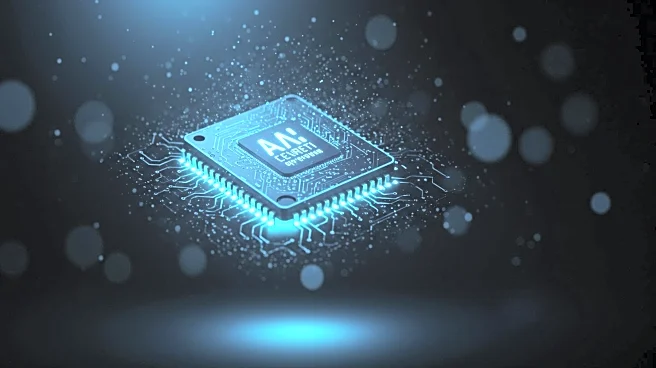What's Happening?
Nvidia has reportedly stopped the production of its H20 AI chips following warnings from Beijing about potential security risks. The Chinese government has expressed concerns that these chips might contain backdoors, which could allow the U.S. to access sensitive data. As a result, China is encouraging its companies to switch to domestic chip alternatives. This development comes shortly after Nvidia and other companies were permitted to sell AI chips tailored for the Chinese market. Nvidia has responded by stating that cybersecurity is a priority and assured that their chips do not have backdoors, emphasizing that the H20 chips can be used with confidence.
Why It's Important?
The halt in production of Nvidia's H20 AI chips highlights the ongoing tensions in the U.S.-China tech landscape, particularly in the semiconductor industry. This move could impact Nvidia's market presence in China, a significant player in the global tech market. The situation underscores the broader geopolitical struggle over technological dominance and data security. For U.S. companies, this could mean a loss of market share in China, while Chinese companies might accelerate the development of domestic alternatives, potentially reshaping the global semiconductor supply chain.
What's Next?
Nvidia and other U.S. tech companies may need to reassess their strategies in China, considering the increasing push for domestic technology solutions by the Chinese government. This could lead to further regulatory challenges and necessitate adjustments in supply chain management. Additionally, the U.S. government might respond with policy measures to support its tech companies, potentially escalating the tech rivalry between the two nations.









